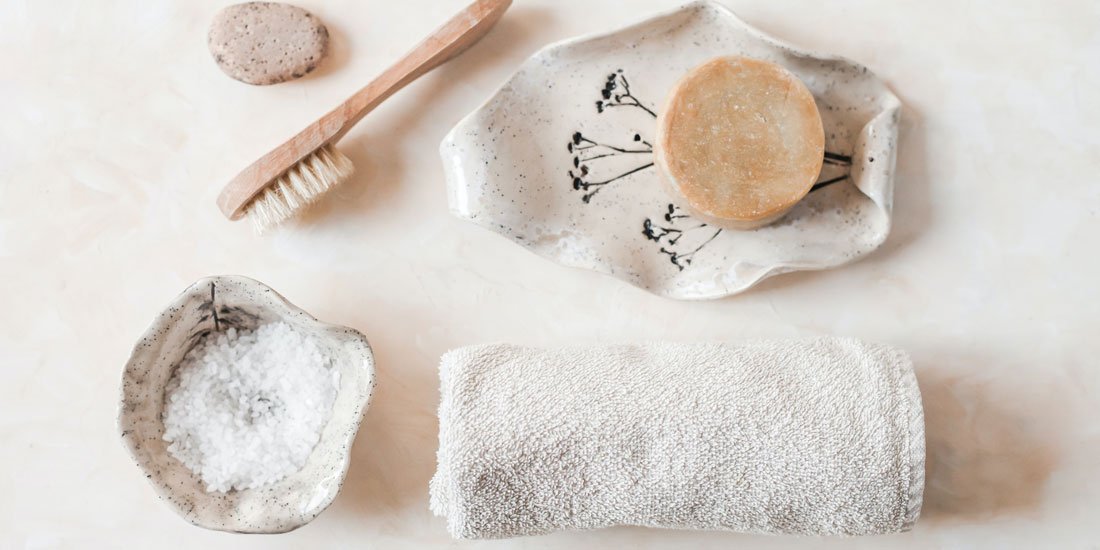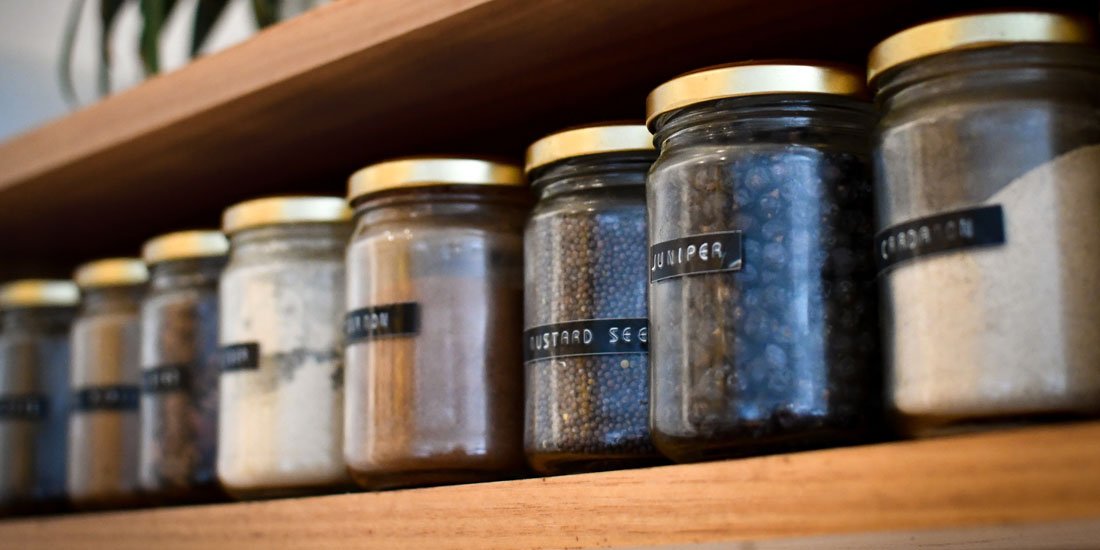

Plastic not-so-fantastic – five ways to help you reduce your reliance this July
Plastic has emerged as one of the greatest man-made environmental disasters of our time. Synthetic pliable polymers made from petrol have transformed the way we live – it’s cheap to produce and long-lasting. Unfortunately for planet Earth, it is those very attributes that have cursed the eco-system as nearly every single piece of plastic ever created still exists in some form today. It has infiltrated every aspect of modern life – from the devices we are using to bring you this article to the cars we drive, the bottles that house our shampoos and cleaning products to the cling film that is keeping your lunch fresh in the fridge – it’s all plastic and it will outlive you by a few hundred years. In a perfect world we would all pledge to go plastic-free for good, however, the reality is that it may not be possible to do all at once. Anne Marie Bonneau aka The Zero Waste Chef said it best when she said “we don’t need a handful of people doing zero waste perfectly. We need millions of people doing it imperfectly.” With that in mind, we’ve round up a few innovative ways you can eliminate some of the plastic from your life.
View this post on Instagram
Ditch the disposables
As a general rule – if it’s made to be discarded after you’ve used it once or even a handful of times, it’s the environment that is ultimately footing the bill. A plastic toothbrush, for example, will take 500-or-so years in landfill according to this startling lifecycle of plastics info-graphic from WWF. Make a mental list of all of the disposable items you are currently using – face wipes, takeaway coffee cups, pads and tampons, straws, nappies for bub, to name a few, and pledge to source a plastic-free alternative when the time comes to find a replacement. Razor nearing its end? Seed & Sprout do an excellent pivoting stainless-steel razor. Time of the month approaching? TOM Organic has recently released a reusable cup with steriliser carry case. Clothes pegs looking a bit Pete Murray (in that they’ve seen better days)? Invest in Biome’s quality marine-grade stainless steel pegs and while it may cost more in the short term, it will save you money in the long run (and also the planet). Another eco-friendly option is Best Pegs, super-strong pegs that are created using 316 marine-grade stainless steel that’s extremely rust resistant. These bad boys, which come in silver or rainbow, even come in a reusable cotton bag. If you are unsure where to start or generally overwhelmed with it all, Biome has an entire section on its website dedicated to plastic-free household and beauty items. It’s only one straw, said eight billion people. Let’s be part of the change.
View this post on Instagram
Bars are back, baby
Do you remember going to your grandma’s place back in the day and being a little bit grossed out by the bar of soap perched on the edge of the sink? Well, bars are back in a big way! And not just for your hands – shampoo and conditioner bars have come a long way in recent times and now offer a good lather and are generally free from any added nasties. Good for you and the planet – that’s win win! If you’re on the hunt for some soap that won’t make you cringe, Bush Medijina’s hand-crafted blocks are bursting with bush botanicals to provide a little everyday luxury, Shop Naturally offers an excellent range of shampoo and conditioner bars, and Peggy Sue has also created a luscious range of eco-friendly self-care products for you to slather on. Nourished Life is also a one-stop-shop when it comes to eco-friendly products. Hot tip, shampoo bars aren’t just for us human folk, Cider & Basil makes botanical shampoo bars with plant-based oils and clays for pampered pooches.
View this post on Instagram
Butt why?
Here’s a grim stat for you, on a daily basis toilet paper wipes out 27,000 trees worldwide. Given its entire purpose is to be flushed down the toilet or dumped in landfill, it seems crazy to drop dosh on crisp triple ply right? How We Roll Co. is an eco-friendly alternative that delivers bulk boxes of tree-free and plastic-free toilet paper and household items including biodegradable bin liners, bamboo paper towel and tissues to your door – it’s convenience wrapped in sustainability! The company is also doing its part in slowing the process of deforestation by planting one tree in an Australian bushfire-affected area for every box sold. Take a peek at How We Roll Co.’s online store here.
View this post on Instagram
Say sayonara to fast fashion
Okay this one isn’t as simple as switching from a bottle to a bar as there is a lot to unpack when it comes to the term ‘sustainable fashion’ and like an onion, there are many layers. It is widely reported that fashion is the second most polluting industry in the world (the first is oil, just in case you were wondering), which means that we need to start shopping smarter if we wish to make a positive impact on the planet. One of the many (many) problems with fast fashion is that synthetic fabrics like polyester shed microplastics in the washing machine and according to Science Direct (as posted on Zero-Waste Chef), a typical load of laundry can send 700,000 of these plastic fibres into the waterways and all levels of the ocean food chain, from plankton to marine mammals and eventually, to us. The solution is to wash less but also replace rayon viscose and other synthetic materials for sustainable alternatives such as organic cotton, bamboo, linen, lyocell (tencel), wool and hemp. Biome features a selection of slow-fashion labels, as does Net-A-Porter’s Net Sustain and The Iconic’s Considered edit. Byron Bay’s Arnhem and Spell & The Gypsy are also among the many conscious fashion labels committing to more environmentally friendly fabrics.
View this post on Instagram
Embrace #pantrygoals
If you’ve spied the pantry goals hashtag, you’ve probably got a pretty good idea of what we’re talking about here. There’s a lot of single-use plastic lurking in the refrigerator and pantry, from your fancy feta to the bag holding the brown rice – it’s all plastic and destined for landfill. Now that you’ve committed to reducing your plastic consumption, you can shop a little smarter by opting for glass jars and bottles, cardboard boxes and aluminium BPA-free cans because these can all be reused and recycled. Another option is to take all of those glass jars you’ve accumulated and head to your nearest bulk foods store to stock up on pantry staples such as rice, flour, sugar and dried pasta. Similarly, opt for farmer’s market over a supermarket, even fruit and veg shops have a tendency to wrap produce in film, which is, you guessed it, plastic.
It can be pretty overwhelming but in the wise words of Arthur Ashe, “start where you are. Use what you have. Do what you can.” Use a pencil instead of a plastic pen, make your own beeswax wraps (it’s easier than you think!), educate yourself on what can and can’t be recycled, for example, did you know that in Brisbane, more than 64 percent of the contents in your household rubbish bin could have been kept out of landfill? Take a peek at this handy guide for a cheeky refresher and if you’re looking for a little inspiration to continue on your plastic-free and zero-waste journey, take a peek at A Zero Waste Life by eco-warrior Anita Vandyke, Wasteland Rebel, The Rogue Ginger blog, Waste Not Everyday 365 ways to reduce, reuse and reconnect by Erin Rhoads.
